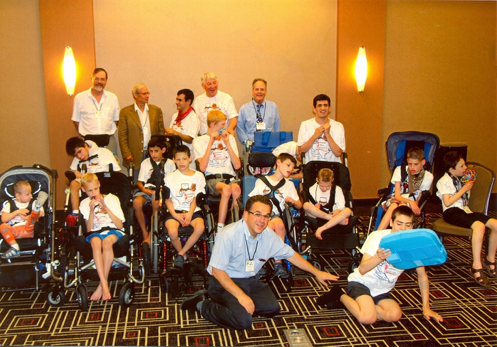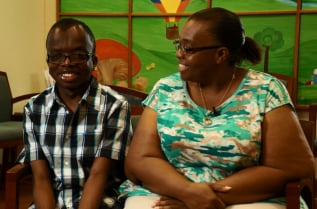
Dr. Charles Schwartz, Director of Research at the Greenwood Genetic Center, attended the 1st International Conference on Christianson Syndrome in Houston in August.
Dr. Charles Schwartz, Director of Research at the Greenwood Genetic Center, attended the 1st International Conference on Christianson Syndrome in Houston in August. In 2008, Schwartz was part of the team who identified the gene, SLC9A6, that causes Christianson syndrome, and GGC was the first laboratory to offer testing for this gene to patients. Schwartz was invited to speak at the conference about the clinical findings, progression and diagnosis of this rare disorder. The conference included specialists in this disorder coming together from the US, South Africa, France, Canada, Denmark, the Czech Republic and Norway to share their work and discuss future directions of research.
Christianson syndrome, first identified by Dr. Arnold Christianson of the South African National Health Laboratory, includes intellectual disability, epilepsy, and ataxia, or abnormal, uncoordinated movements. The gene for Christianson syndrome, SLC9A6, is on the X chromosome, so only males are affected.
“This was an amazing opportunity for me to not only share the work we’ve done on Christianson syndrome with other researchers, but also to spend some time with the families impacted by this condition,” said Schwartz. “These families are working closely with scientists to better understand Christianson syndrome, and they inspire the work we do every day.”
Photo Caption: GGC’s Schwartz (back row second from right) and other researchers with boys impacted by Christianson syndrome.
